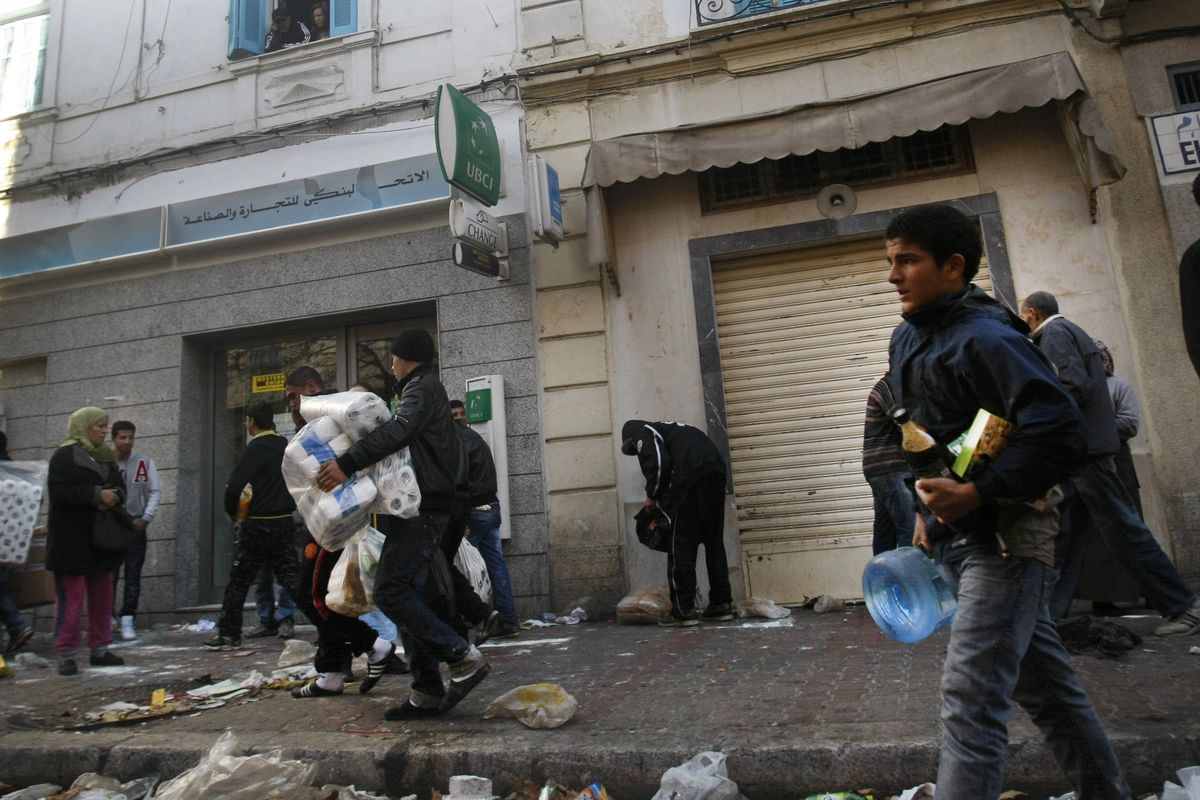Leadership changes yet again in Tunisia
Chaos colors transition in Arab country

TUNIS, Tunisia – The leadership of this troubled country changed hands for the second time in less than 24 hours Saturday as security forces and ordinary Tunisians struggled to quell mayhem that some have attributed to henchmen loyal to ousted President Zine el Abidine Ben Ali.
Fouad Mebazaa, president of the lower house of parliament, was sworn in as chief of state amid fast-moving political developments and chaotic lawlessness that have transformed Tunisia into a symbol of revolution in the Arab world.
Mebazaa, 77, became the national president less than a day after Ben Ali fled to Saudi Arabia and handed power to his prime minister, Mohamed Ghannouchi, whose appointment sparked new demonstrations and questions about constitutional propriety. Mebazaa promised in a televised speech to consult with all political parties before holding elections within 60 days.
“I urge you all, and all dynamic forces of political parties, national organizations and components of civil society, to put national interest first and to help the armed forces and national security in maintaining security and in protecting private and public property, and to restore calm and tranquility to all citizens,” he said.
With footage of the uprising airing constantly on satellite television throughout the region, the events in Tunisia have captivated Arabs who hope it will inspire the toppling of other entrenched authoritarian regimes. That has raised the stakes for a people’s power rebellion that could be threatened by the continuing violence.
Tension and confusion gripped the streets, where many residents spent hours searching for bread and other food reserves. Tanks were positioned in the heart of Tunis, along the capital’s main Avenue Habib Bourguiba. Death toll figures were not available, but scores of people across the nation have died in the unrest, including 57 reportedly killed in an inferno at a prison Saturday.
As a 5 p.m. curfew approached, surly young men appeared to be gathering steam for another possible night of clashes with police, who stalked sidewalks wearing riot gear and holding clubs, menacing pedestrians who didn’t move quickly enough.
As night fell, occasional bursts of gunfire could be heard throughout Tunis and its suburbs, as well as the occasional roar of army helicopters roaming the skies.
On Saturday, the country’s constitutional court ruled that the departure of Ben Ali, driven out of office Friday after weeks of protests over rising food prices, unemployment and a lack of political freedom, was permanent. And France, the former colonial power that had long backed Ben Ali, asked relatives of the former president who had entered the country to leave and announced the launch of investigations into suspicious money transfers between Tunisia and France.